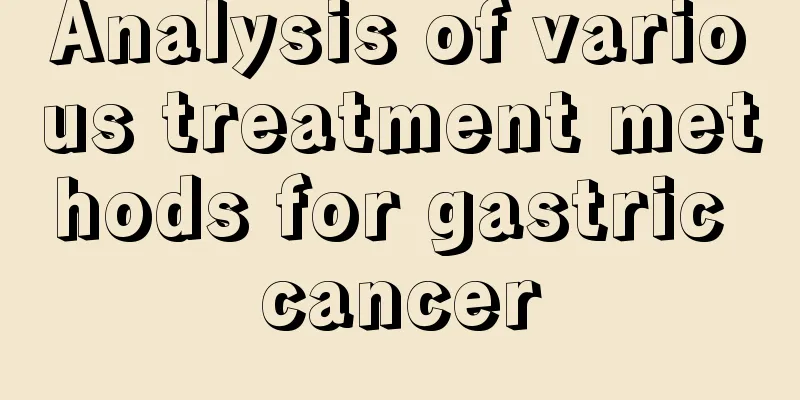Principles of dietary care for patients with esophageal cancer after surgery

|
After esophageal cancer surgery, there will be various discomforts in the chest and stomach, such as palpitations and chest tightness, so you should not eat too much each time, and it is better to eat small meals frequently. Because patients are prone to reflux symptoms after eating after anastomosis, it is best to move around for a while after eating. After 30 minutes, lie down in bed to rest so that part of the food in the stomach can be discharged to reduce reflux. So what principles should be paid attention to in dietary care after esophageal cancer surgery? The following is a detailed introduction to the principles of dietary care after esophageal cancer surgery: Pay attention to dietary adjustment. During the treatment, light, nutritious and easy-to-digest food should be given. Attention should be paid to the color, aroma, taste and shape of the food to increase appetite and ensure nutrition. During the intermittent period of treatment, more foods that have the effects of nourishing blood, replenishing blood and replenishing qi should be given to improve the body's disease resistance. Timely and regular review The first review is usually arranged about 3 months after surgery. The purpose is to understand the patient's postoperative recovery and whether there are any complications, such as anastomotic stenosis, postoperative gastrointestinal dysfunction, malnutrition and metastasis. Therefore, some necessary examinations should be carried out, such as whether there is metastasis in the superficial lymph nodes, blood routine, esophageal angiography, etc. Once a problem is found, timely treatment should be given. The second review is about 1 year after surgery. Most patients in the middle and late stages will have metastasis or recurrence 1 year after surgery, which is often manifested in suprasternal lymph node metastasis, mediastinal metastasis compressing the trachea and invading the recurrent laryngeal nerve, respiratory symptoms and hoarseness, and blood in sputum. During the review, it is necessary to understand whether the anastomotic stoma is recurrently stenotic, whether there are metastatic lesions in the lungs, and abdominal B-ultrasound to exclude liver metastasis. And other corresponding parts that may have metastatic symptoms. Patients can consult the hospital for more information about esophageal cancer. Our hospital has many pediatric oncology treatment experts with superb medical skills and rich experience in diagnosing and treating esophageal cancer. We hope that the above introduction will help the patient's recovery. For more details, please consult our online experts. We wish the patient a speedy health! Esophageal cancer http://www..com.cn/zhongliu/sda/ |
<<: Postoperative diet for patients with esophageal cancer
>>: How to prevent colon cancer through diet
Recommend
Should I do scraping first or moxibustion first?
Gua Sha and moxibustion are both traditional Chin...
Is cupping and blood drawing harmful to the body?
Traditional Chinese medicine is becoming more and...
The efficacy and function of yak horn
There are many kinds of cattle in life, and the f...
At what size does a baby’s ear cartilage take shape?
When a baby is born, he or she has relatively ten...
My eyes hurt and I can't open them and they are crying. What's going on?
Eye pain is related to many factors, and many peo...
Which type of oolong tea is better?
Oolong tea has a long-lasting aroma, the tea soup...
The more you know about the early symptoms of bladder cancer, the better you can prevent it.
The earlier the early symptoms of bladder cancer ...
What to do if you have crazy hiccups
When you hiccup, you will feel a sudden contracti...
What causes blisters on the lips?
Have you ever paid attention to the reasons for b...
Cost of biological immunotherapy for endometrial cancer
The incidence of endometrial cancer is getting hi...
What is the cause of Hashimoto's thyroiditis
If we talk about Hashimoto's thyroiditis, you...
My throat feels blocked after eating
Three meals a day is an eating habit that everyon...
How to regulate poor sleep
Good sleep is an important guarantee for good hea...
Who are the high-risk groups for prostate cancer? Three types of men need to be screened for prostate cancer
In recent years, the incidence of cancer has been...
What are the common symptoms of primary liver cancer
Liver cancer is very common in life. Clinically, ...









